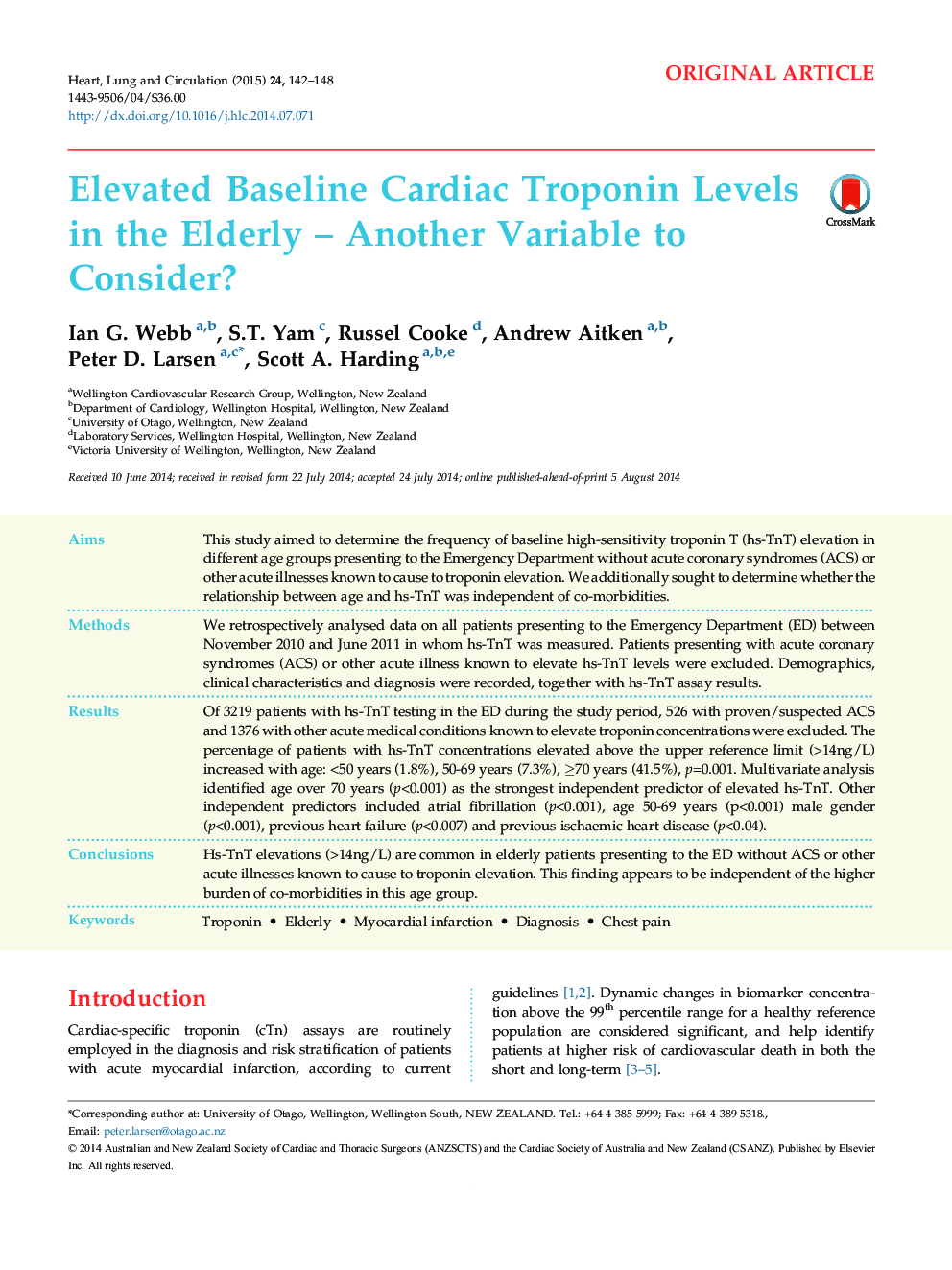| Article ID | Journal | Published Year | Pages | File Type |
|---|---|---|---|---|
| 2918238 | Heart, Lung and Circulation | 2015 | 7 Pages |
AimsThis study aimed to determine the frequency of baseline high-sensitivity troponin T (hs-TnT) elevation in different age groups presenting to the Emergency Department without acute coronary syndromes (ACS) or other acute illnesses known to cause to troponin elevation. We additionally sought to determine whether the relationship between age and hs-TnT was independent of co-morbidities.MethodsWe retrospectively analysed data on all patients presenting to the Emergency Department (ED) between November 2010 and June 2011 in whom hs-TnT was measured. Patients presenting with acute coronary syndromes (ACS) or other acute illness known to elevate hs-TnT levels were excluded. Demographics, clinical characteristics and diagnosis were recorded, together with hs-TnT assay results.ResultsOf 3219 patients with hs-TnT testing in the ED during the study period, 526 with proven/suspected ACS and 1376 with other acute medical conditions known to elevate troponin concentrations were excluded. The percentage of patients with hs-TnT concentrations elevated above the upper reference limit (>14ng/L) increased with age: <50 years (1.8%), 50-69 years (7.3%), ≥70 years (41.5%), p=0.001. Multivariate analysis identified age over 70 years (p<0.001) as the strongest independent predictor of elevated hs-TnT. Other independent predictors included atrial fibrillation (p<0.001), age 50-69 years (p<0.001) male gender (p<0.001), previous heart failure (p<0.007) and previous ischaemic heart disease (p<0.04).ConclusionsHs-TnT elevations (>14ng/L) are common in elderly patients presenting to the ED without ACS or other acute illnesses known to cause to troponin elevation. This finding appears to be independent of the higher burden of co-morbidities in this age group.
